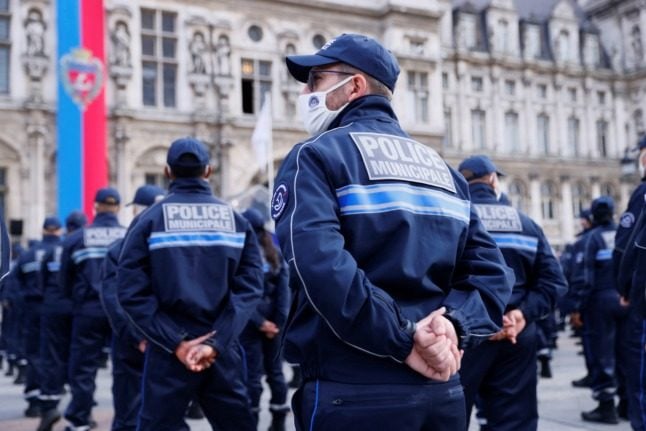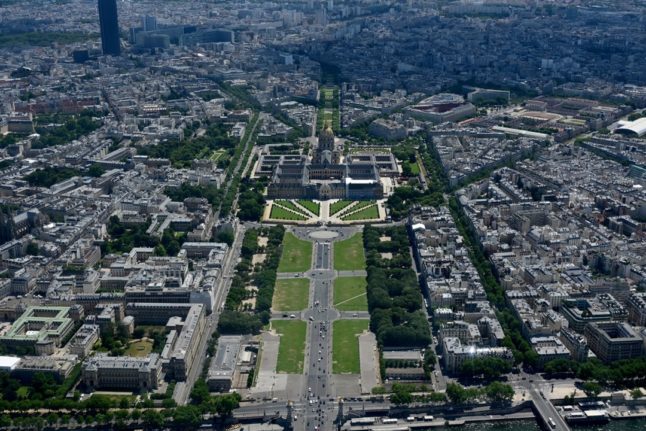Paris Mayor Anne Hidalgo presented the first intake of Police Municipale (Municipal Police) officers during a ceremony at City Hall on Monday, October 18th.
Most larger French towns and cities already have a locally-led municipal police force, who focus on offences such as anti-social behaviour and traffic offences, but Paris has long been the exception.
For many years, Hidalgo was opposed to the idea, but in January 2019, she announced her intention to create a Municipal Police force in the capital, ending an exception which dates back to 1800. Hidalgo said the new force “will be totally ready in 2024 to welcome the entire world to Paris for the Olympic and Paralympic games”.
The new officers will be present across the 20 arrondissements, will patrol the city on foot or on bicycles, and will be equipped with bulletproof jackets, body cameras, batons and tear gas – but will not be armed.
The lack of lethal weapons has not been well-received by everybody in the city. “Having bulletproof jackets but nothing to defend themselves with is anachronistic and rather illogical,” Geoffroy Boulard, mayor of the 17th arrondissement, told Europe 1.
It is up to local authorities to decide whether the Municipal Police should be armed – just over half of officers across the country carry a firearm.
What is their job?
The 154 men and women will be responsible for four main areas, City Hall has said: “Ensure the cleanliness of the city, make sure Parisians are safe, protect pedestrians and the most vulnerable road users, pacify the city notably in the evening and during the night.”
Part of their role will be to respond to what are referred to in French as incivilités (incivility), including offences such as fly-tipping, throwing cigarette butts on the ground, noise disturbances, and traffic offences such as illegal parking.
They do have the power of arrest, but must deliver any arrested person to the Police Nationale (National Police).
The new officers will work alongside this existing force. Today, the National Police officers responsible for policing the capital report to the préfet de police de Paris, following a decision by Napoléon Bonaparte in 1800 to put the centralised state in charge of the city’s policing.
“A Municipal Police which does its job well will free up the National Police to concentrate on its principal missions: combating delinquency, drug trafficking and terrorism,” said Nicolas Nordman, deputy mayor in charge of security.
READ ALSO Gendarmes to policiers – who does what in the French police force?
In recent years, Paris had already begun taking on more responsibility for its own security, with the creation of the Direction de la prévention, de la sécurité et de la protection (Prevention, Security and Protection Authority). The 3,400 members of that authority will gradually be trained to become part of the Municipal Police.
By 2026, the city eventually hopes to have 5,000 people in charge of security, including 3,400 Municipal Police officers, adding to the 24,000 already in place in other cities across the country.
Police watchdog
“In order to better meet the expectations of Parisians, their police must be in their image,” Hidalgo said during the presentation on Monday.
This includes a focus on gender equality – almost 40 percent of the first intake are women – as well as focusing on the social backgrounds of officers, with a new training centre set to be created in Paris.
The Mayor also announced the creation of an “ethics committee” to ensure that officers do not abuse their powers.



 Please whitelist us to continue reading.
Please whitelist us to continue reading.
I wonder if they will have the power to force dog owners to clear their dog’s mess from the street if they don’t do that voluntarily?